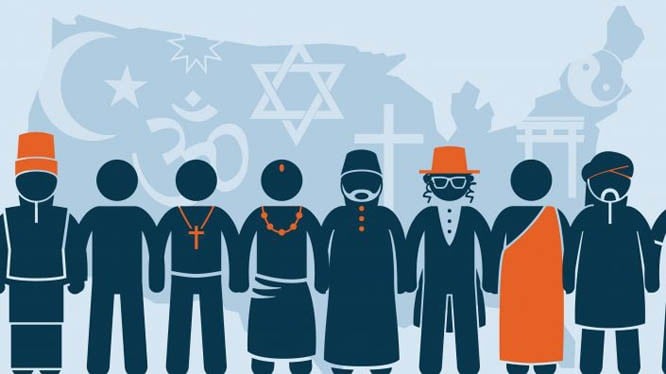
Democratic traditions need time to take roots. Tolerance is one such stradition. We need some continuity

Tolerance is allowing behaviours, beliefs and attitude that are different from your own. You do not agree with those behaviours, beliefs and attitudes or approve of them.
Let’s take an example. First, Mr A disagrees with the attitude, belief system or a perspective of Mr B. Secondly, A is respectful towards B or at least A is not disrespectful of the latter. A does not call B names no matter how much A detests choices B makes. Similarly, A does not target the personal life of B until it spills over into the public life of A. Third, A allows that B live with his thoughts and opinions and spread and propagate them. A may choose to counter B’s message through peaceful means but A cannot stop B from spreading his own. Fourth, A cannot use force to spread and propagate his message.
Why do we need to talk about tolerance?
We earnestly need tolerance. Our Twitter and Facebook accounts overflow with negative and abusive language with regards to people we disagree with on account of religion, sect or political choices people make. No surprise then, our Twitter and Facebook users incite violence against people, especially non-Muslim Pakistanis, and politicians who challenge the security state orientation of our country.
On ground, non-Muslim girls are converted to Islam by force or through intimidation. Non-Muslim neighbouhoods are attacked and worship places damaged, ransacked and pillaged. Followers of various Muslim sects attack one another over narrow differences.
Does tolerance mean you can’t criticise those you disagree with? Freedom of expression is an inalienable right in a democracy. Criticism is a part of the freedom of expression. Codified in the Section 19 (2) of the UN Human Rights’ International Covenant on Civil and Political Rights, freedom of expression "includes freedom to seek, receive and impart information and ideas of all kinds, regardless of frontiers, either orally, in writing or in print, in the form of art, or through any other media of his choice." There is absolutely no democracy in the absence of opposition and, by extension, criticism.
Is freedom of expression unlimited? According to Article 19 (3) UN Human Rights’ International Covenant on Civil and Political Rights, freedom of expression carries "certain restrictions". One’s freedom of expression cannot violate "respect of the rights or reputations of others". Freedom of expression should take into account "the protection of national security or of public order, or of public health or morals," as required by Article 19 (A,B) of the UNHR International Covenant on Civil and Political Rights.
Thus, advocating religious, sectarian and ethnic and other forms and manifestations of hatred that may lead to incitement of violence, discrimination, and disrupt public order should be dealt with according to law of the land.
Does law of the land determine what the limits of freedom of expression are? It is the laws passed by the Parliament that our government enforces. This never means laws are immune to fallibility. This never means that those at the helm of affairs do not misuse the authority invested in the offices they hold. In our case, news channels critical of the state and government’s policies are taken off air. Newspapers are not allowed to publish articles that criticise certain policies and priorities of the state and the government.
Likewise, social media is among the targets of the government. In March 2019, FIA’s Cyber Crime Wing initiated inquiries against six journalists and four organisations just because they criticised Crown Prince Muhammad bin Salman while he was visiting Pakistan. They were accused of displaying "the picture of murdered Saudi journalist Jamal Khashoggi on their social media profile which conveyed a very disrespectful message to the visiting guest," the FIA stated.
The government definitely disagreed with the behaviours of the five journalists and six organisations. The Saudi government could never make Pakistani government accountable for the behaviours of people and organisations that were not part of the government. Neither was Pakistan an undemocratic polity.
Democratic traditions take time to take roots. Tolerance is a democratic tradition. We need the continuity. Sadly, democracy has been derailed derailed too often. What we gained must not be lost. It seems that the incumbent government leaves much to be desired on this score. Accountability is not only financial; it is moral too. An elected government is always accountable to its people. If and when journalists, news channels, writers and leaders hold the government to account for its actions, they must be allowed to freely express themselves no matter how much the government dislikes what they say.
Our religion and sect may be different from others, but none of us must try to impose our will on another. The essence of tolerance is ‘agreeing to disagree’.